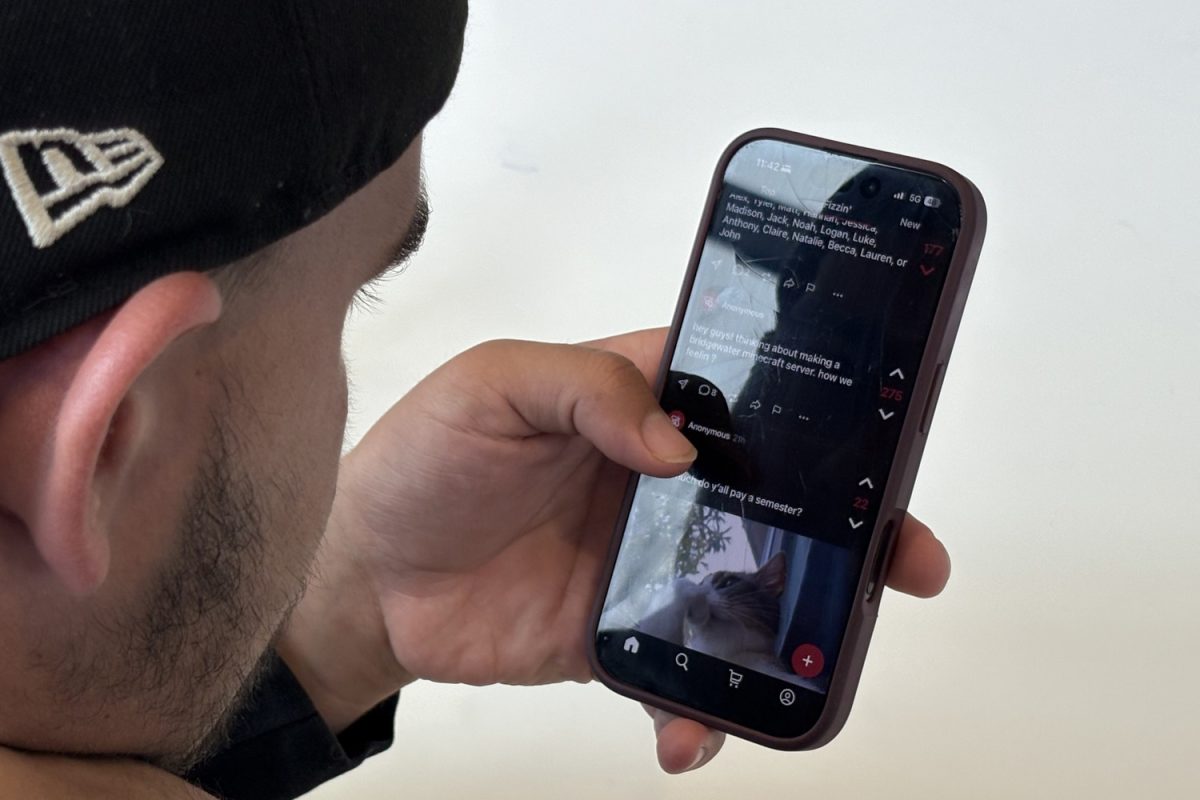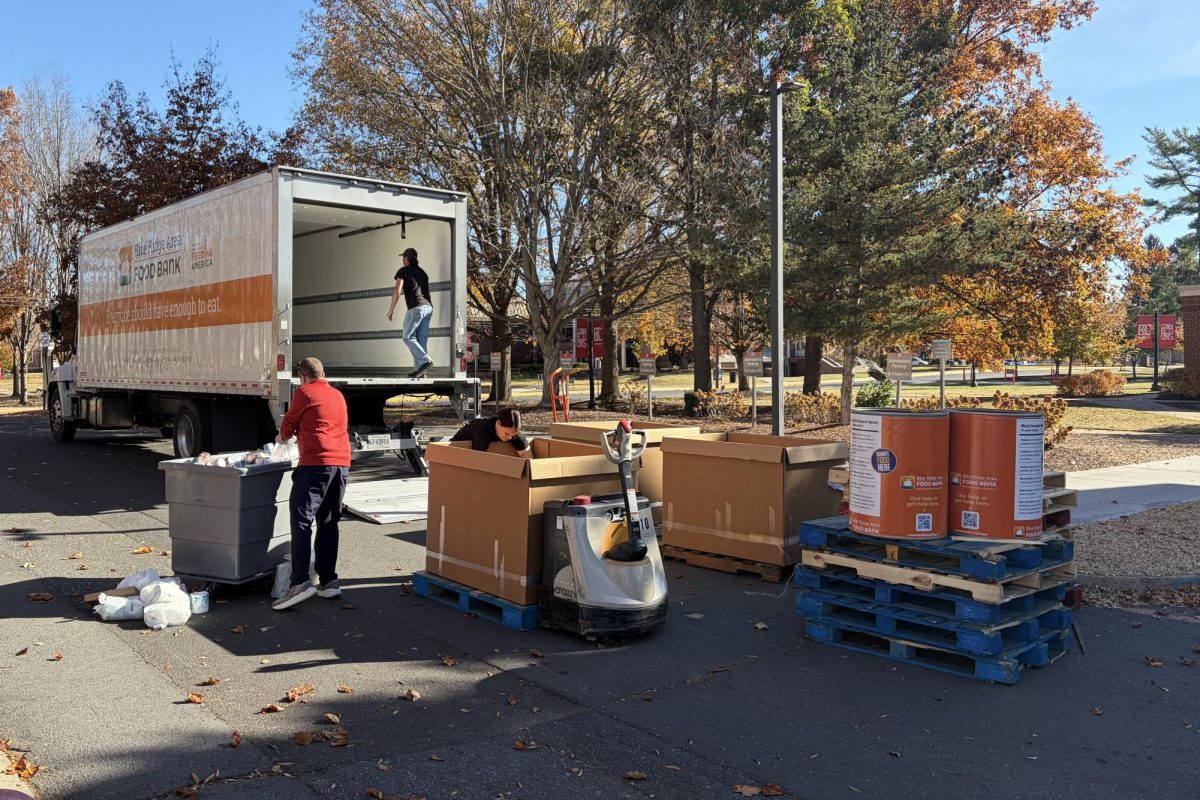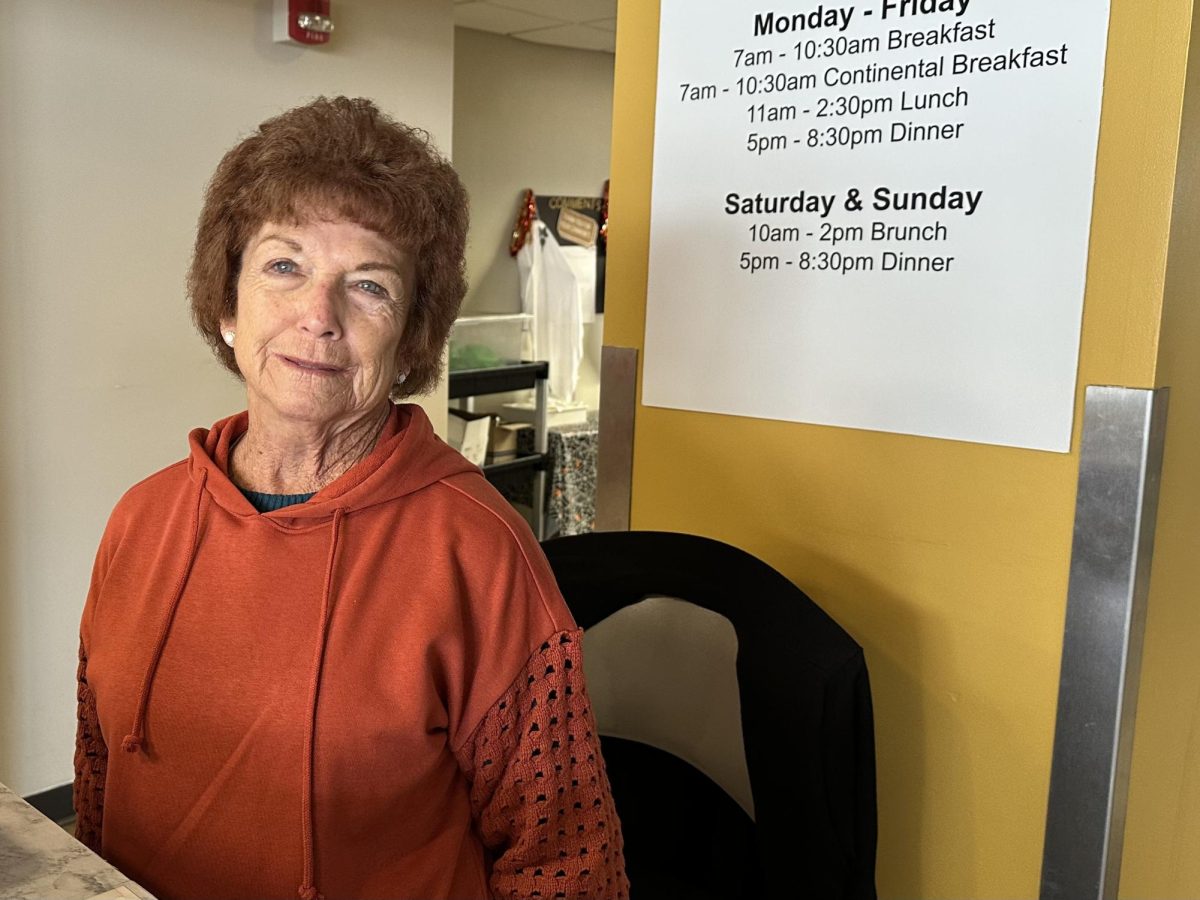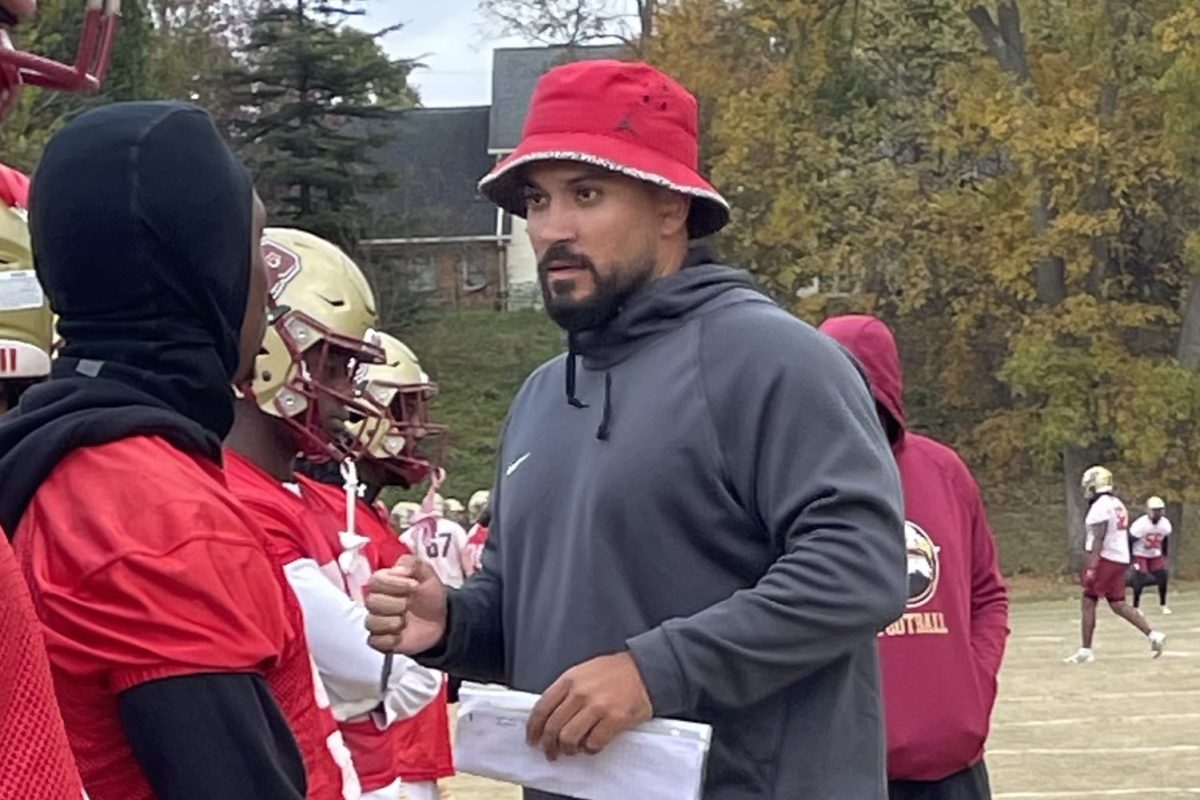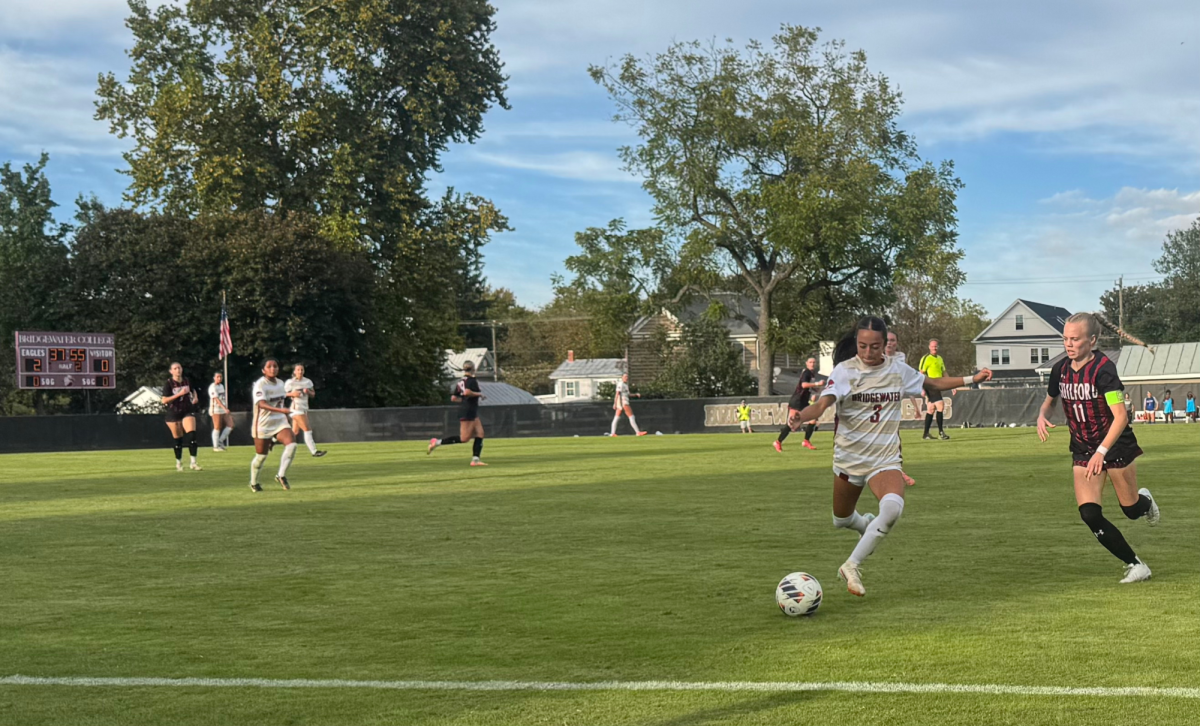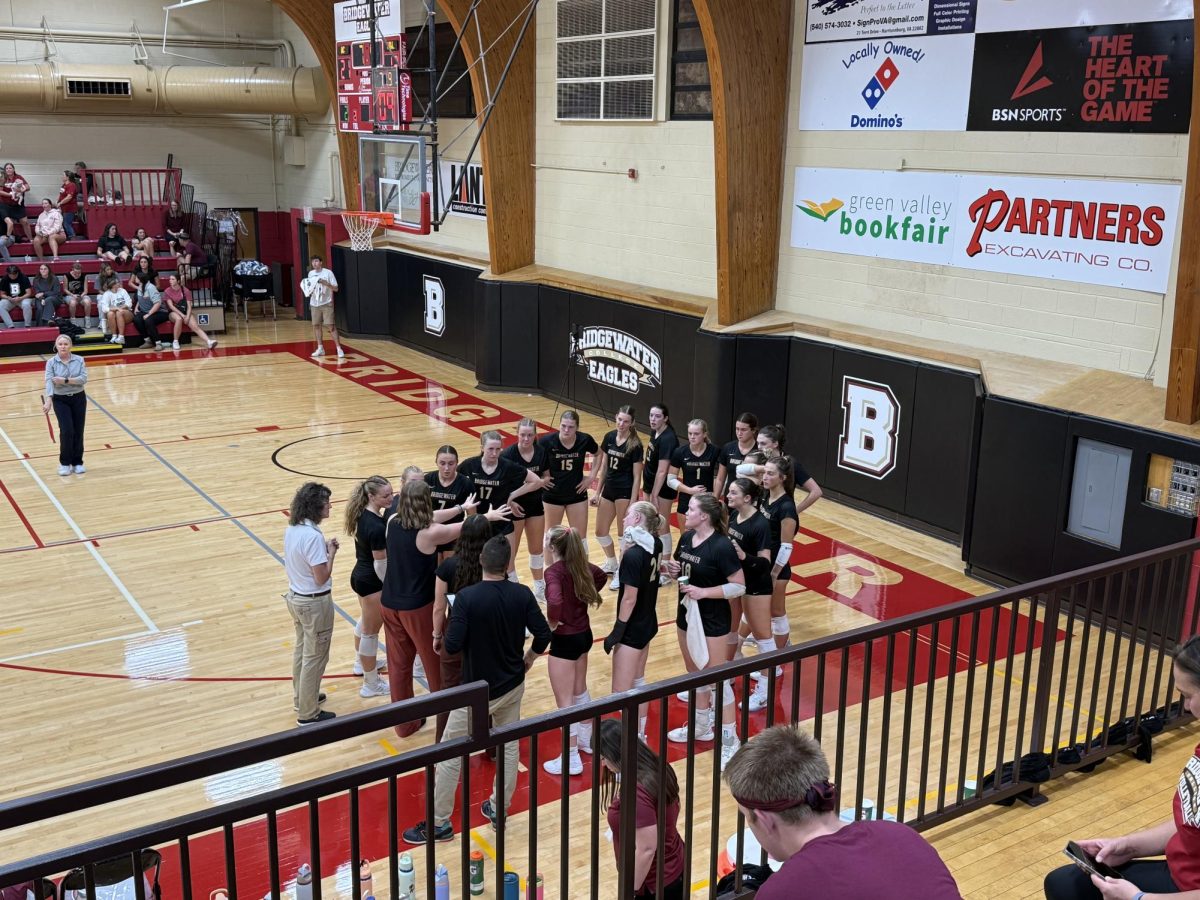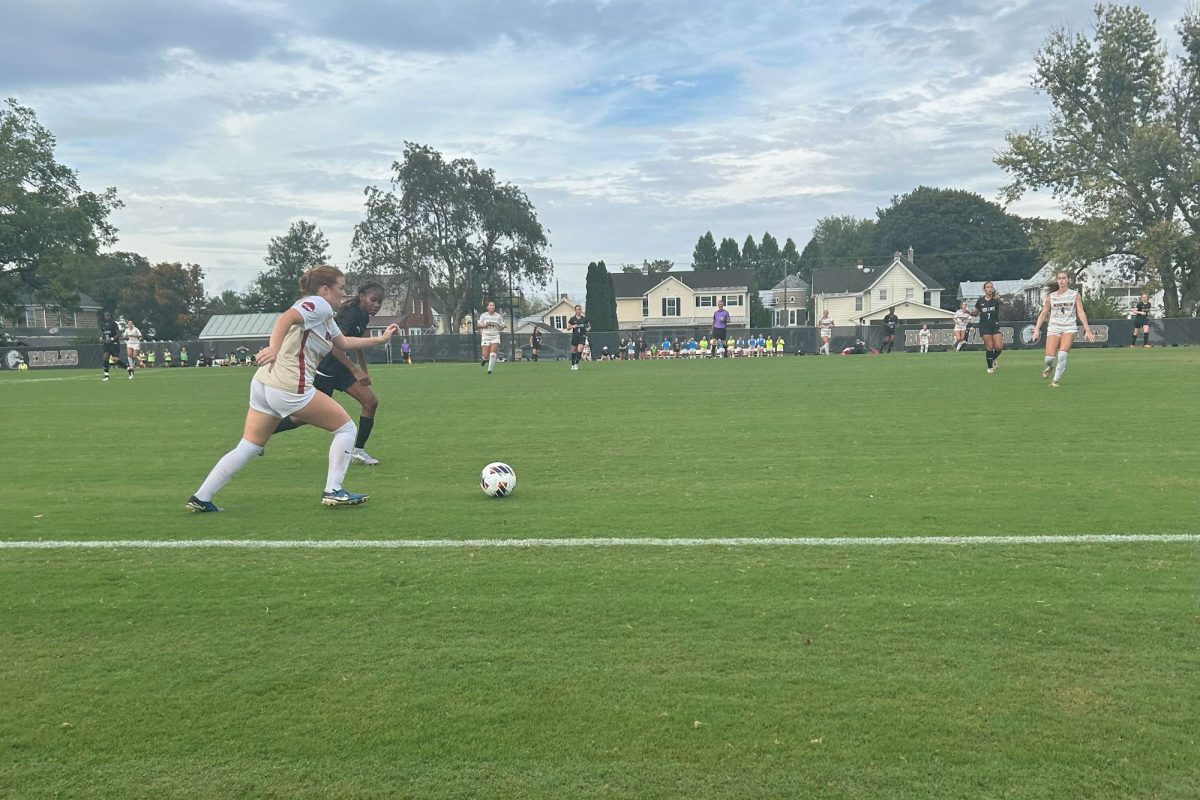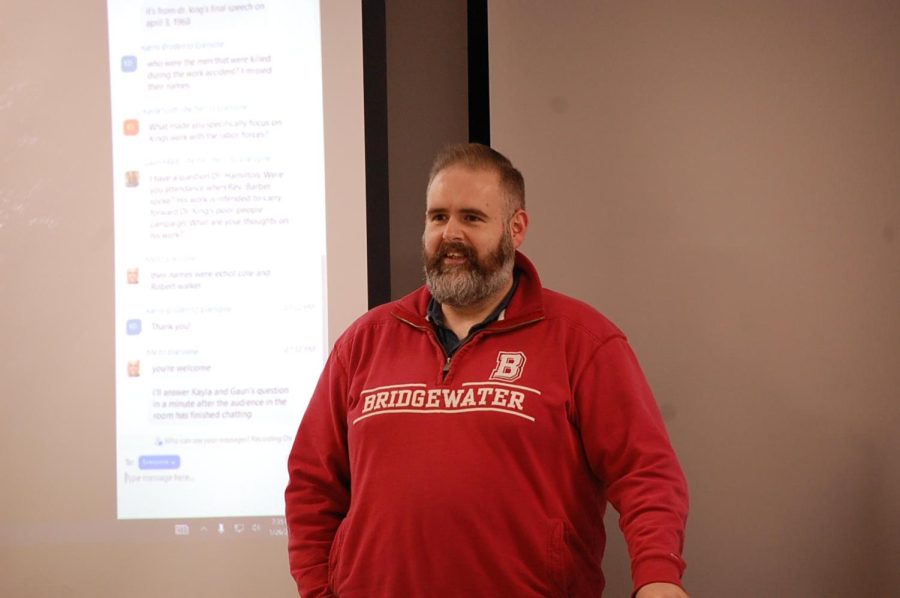All Labor Has Dignity: Teach-in Session
Sam Hamilton speaking during his teach-in lesson in the Forrer Learning Commons. This was the first of three Dr. Martin Luther King Jr. Day Celebration teach-in sessions during Jan. and Feb.
February 7, 2023
On Jan. 26, Assistant Professor of English Sam Hamilton held his first teach-in session at Bridgewater College. This teach-in session celebrating Martin Luther King Jr. Day, “All Labor has Dignity,” talked about the fight for economic justice during King’s endeavors, in addition to his fight for civil rights.
The session began with Hamilton talking about how King’s work went beyond social justice and also fought for the rights and treatment of black workers in the workplace.
“Dr. King was a champion of not only civil rights and racial justice, but also workers’ rights and economic justice,” said Hamilton.
During the teach-in session, Hamilton went into detail about specific instances in which King advocated economic justice. Some of his most prominent work in relation to this fight was in Memphis during 1968.
“Dr. King was present in Memphis on April 4, 1968, to advocate on behalf of black folks, but more specifically, he was present in Memphis to advocate on behalf of black sanitation workers who had been engaged in a protracted struggle with the Memphis Department of Public Works, the Memphis City Council and Mayor of Memphis, Henry Loeb,” said Hamilton.
Many teach-in session attendees enjoyed learning about another layer to King’s work that has historically not been highlighted as much.
“This is something they sort-of gloss over in K-12 schooling. He was an advocate for all who needed advocation,” said sophomore Hayley Savage who attended the teach-in session. “Dr. Hamilton really enjoys discussing topics such as this one, and they’re extremely important to talk about to understand what is happening in our world today.”
In addition to explaining which groups King fought against in Memphis, Hamilton explained in greater detail the conditions for black workers in the city’s sanitation industry. This poor treatment sparked King to fight for economic justice and worker’s rights in Memphis.
“Memphis sanitation workers in the cold and wet days of winter were miserable. Garbage collectors in Memphis, the vast majority of whom were black, bore the brunt of the bad winter weather,” said Hamilton. “Memphis did not provide black workers with gloves, uniforms or places to clean up before or after shift.”
Hamilton explained that he has been lucky to work in right-to-work states, because he believes unions are important for workers. His reasoning behind choosing this topic for the teach-in session was due to frustration across faculty with work politics.
“When asked and given an opportunity to reflect on the life and legacy of Dr. King, I knew he had this commitment to economic justice,” said Hamilton. “It would be great if I had someone who could advocate for me in some sort of organized way.”
Many of the people in attendance at Hamilton’s teach-in were his students.
“What I enjoyed most from the teach-in session with Dr. Hamilton was the fact that it exemplifies a new side of Dr. Martin Luther King’s beliefs,” said Savage. “The fact that he stood up for economic justice and workers’ rights, as well as his role in the civil rights movement.”
In addition to Hamilton’s teach-in session, there have been several more sessions in Bridgewater’s continued celebration of Dr. Martin Luther King Jr. Day and Black History Month. The final of the three teach-in sessions will be on Feb. 9 with Assistant Professor of English Vanessa Rouillon titled “Dr. Martin Luther King Jr.: On Civil Disobedience, America’s Christian Heritage and the Art of Rhetoric.”

